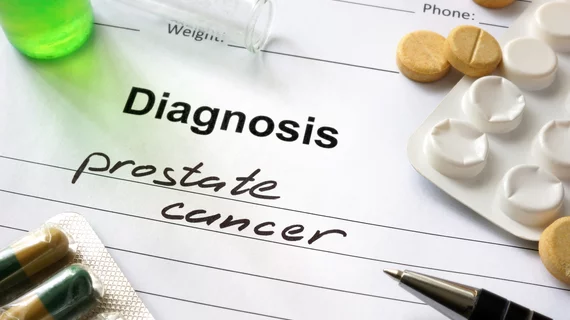Whole-body PET/MRI shows promise for staging high-risk prostate cancer patients
Whole-body PET/MRI shows potential to provide physicians with a “one-stop-shop” for staging high-risk prostate cancer patients, according to new research published in the Journal of Nuclear Medicine.
The authors compared the performance of 68 Ga-PSMA-11 PET/MRI with clinical nomograms currently being used to determine risk by conducting a retrospective study on 73 patients. Two common prediction tools—Partin tables and the Memorial Sloan Kettering Cancer Center (MSKCC) nomogram—and 68 Ga-PSMA-11 PET/MRI were used to predict each patient’s risk for advanced disease. Those predictions were then compared with various histopathologic results.
Overall, the whole-body PSMA-targeted PET/MRI imaging produced positivity rates comparable with both the Partin tables and the MSKCC nomogram.
“Our results showed that PSMA-targeted PET/MRI performed equally well to established clinical nomograms for preoperative staging in high-risk prostate cancer patients and provided additional information on tumor location” co-author Andrei Gafita, MD, of the Technical University of Munich in Germany, said in a news release from the Society of Nuclear Medicine and Molecular Imaging. “Translated into a clinical setting, the use of this imaging technique for preoperative staging might support treatment planning that may lead to improved patient outcomes.”

